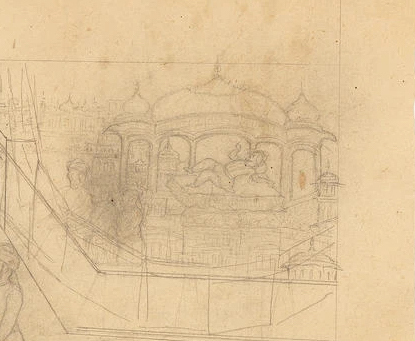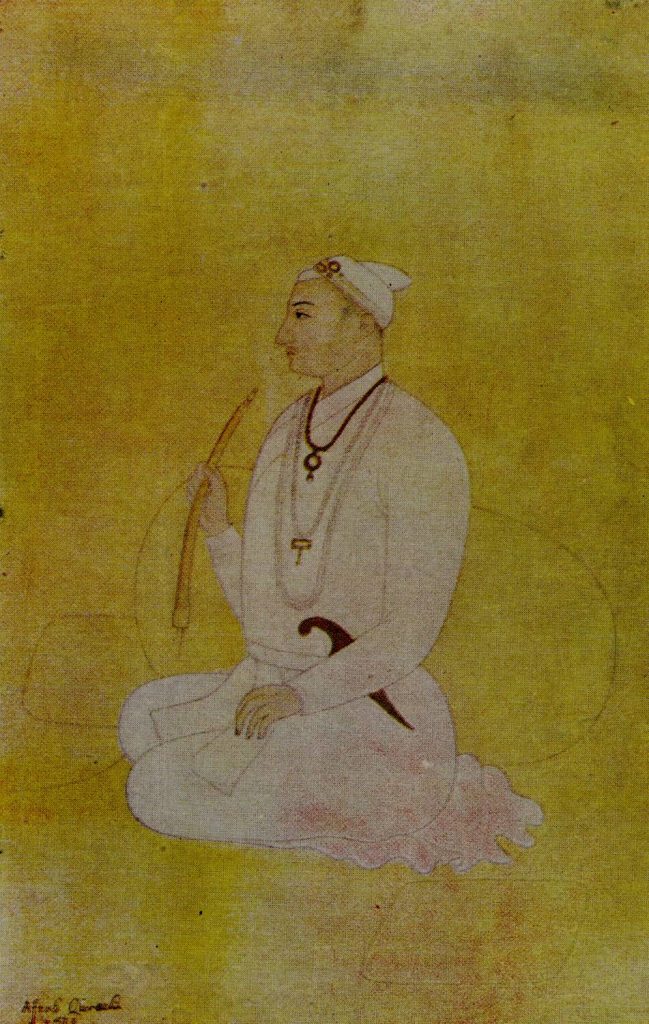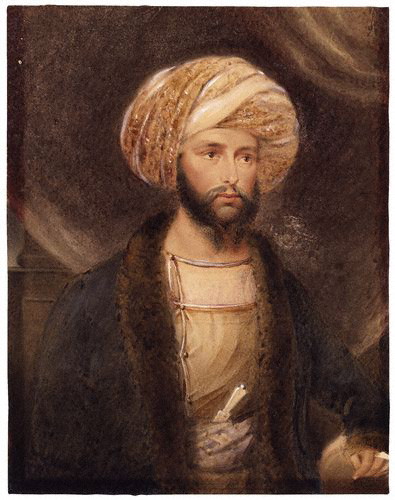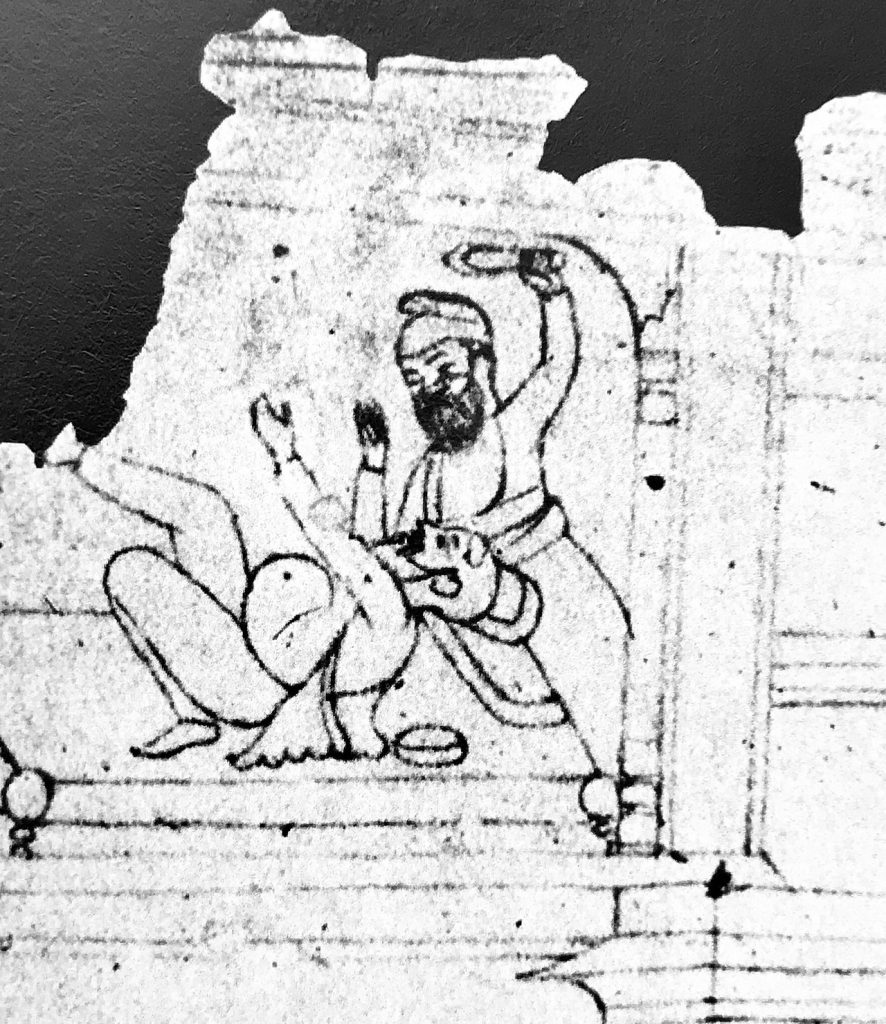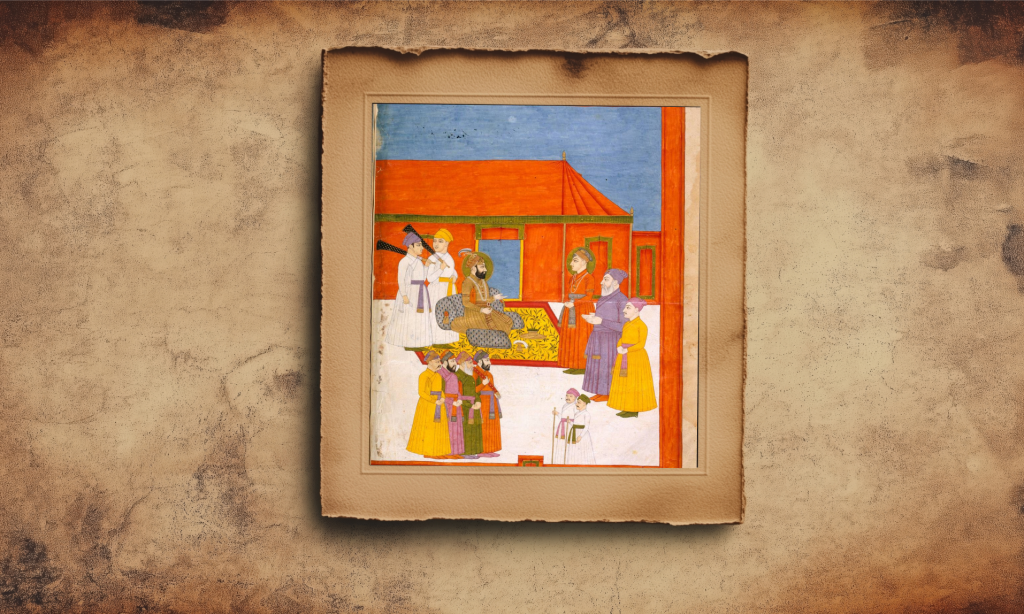Explore the riveting life of Shaikh Imam Ud-Din, governor of Kashmir under Sikh rule, known for his pivotal role in 1840s political strategies and conflicts.
Explore the legacy of Wazir Khan of Lahore, known for his reverence of Guru Arjan and his influential role as governor under Emperor Shah Jahan.
Discover Jhanda Singh Butaua, renowned jdgirddr and military leader under Maharaja Ranjit Singh, celebrated for his bravery and leadership on the frontier.
Explore Yahiya Khan's tumultuous reign as Lahore's governor, the Chhota Ghallughara, and the power struggle with his brother in 18th century Punjab.
Discover the fascinating life of Kaura Mall, an influential Sahajdhari Sikh & Mughal officer in 18th century Punjab. His legacy includes key leadership roles.
Explore the Zafarnamah, an unpublished 1748-49 manuscript detailing Ahmad Shah Durrani's invasions of India and Mu'in ul-Mulk's valiant leadership.
ABBOTT, SIR JAMES (1807-1896), British Resident\'s assistant at Lahore, capital of the sikh kingdom, after the first Anglo - Sikh war (1845-46), was born on 12 March 1807, the son of Henry Alexius Abbott. Passing out of the military college of the East India Company at Addiscombe, England, Abbott received commission as a second lieutenant in the Bengal artillery in 1823. In November 1830, he joined the army of the Indus, under Sir John Keane, for the invasion of Afghanistan. In 1842, he was appointed assistant to the British Resident at Indore.
Explore the inspiring journey of Kirpa Ram, a brave leader of the Kashmir Pandits, who embraced the Khalsa and martyred at Chamkaur. Discover his legacy!
Discover Zakariya Khan's harsh policies against Sikhs, his temporary truce, and relentless efforts to vanquish them amid Sikh resistance in 18th century India.
ABD USSAMAD KHAN (d. 1737), governor of Lahore from 1713 to 1726, a descendant of the Naqashbandi saint `Abdulla Ahrar, a great grandson of Khwaja Baki of Baghdad, was born at Agra when his father, Khwaja `Abd ul-Karim Ansari, had come out with his family from Samarkand on a tour of India during the reign of Emperor Aurangzib. When Samad Khan was two years old, his parents returned to Samarkand where he passed the early years of his life and where he attained the office of Shaikh ul Islam. Soon thereafter he came to India obtaining appointment at the court of Aurangzeb. He served for many years in the Deccan without attracting much notice.



